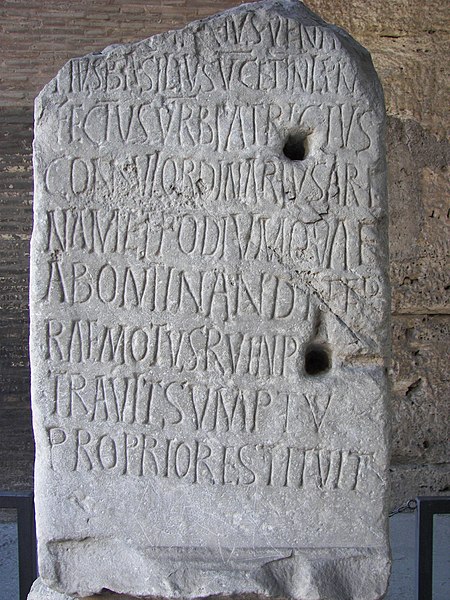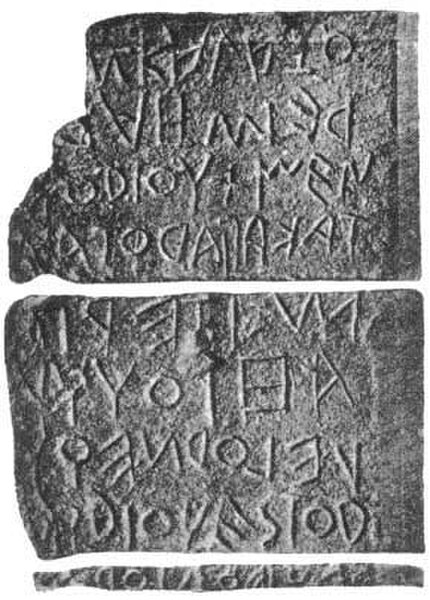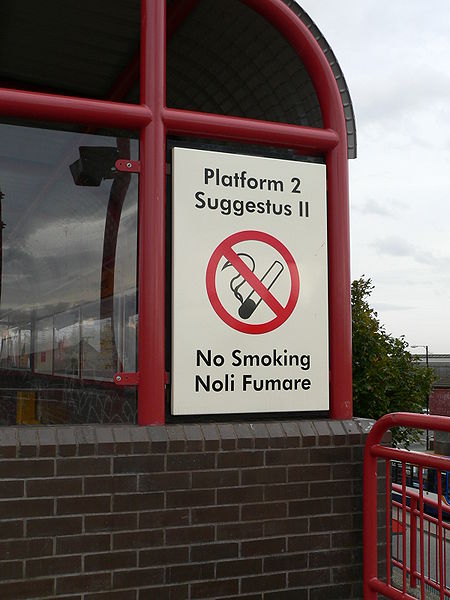An extinct language is a language that no longer has any first-language or second-language speakers, especially if the language also has no living descendants. In contrast, a dead language is a language that no longer has any first-language speakers, but does have second-language speakers, such as Latin. A dormant language is a dead language that still serves as a symbol of ethnic identity to an ethnic group; these languages are often undergoing a process of revitalisation. Languages that have first-language speakers are known as modern or living languages to contrast them with dead languages, especially in educational contexts.
Eteocypriot writing, Amathous, Cyprus, 500–300 BC, Ashmolean Museum
Bilingual Latin–Punic inscription at the theatre in Leptis Magna in present-day Libya
Latin is a classical language belonging to the Italic branch of the Indo-European languages. Considered a dead language, Latin was originally spoken in Latium, the lower Tiber area around Rome. Through the expansion of the Roman Republic it became the dominant language in the Italian Peninsula and subsequently throughout the Roman Empire. Even after the fall of Western Rome, Latin remained the common language of international communication, science, scholarship and academia in Europe until well into the early 19th century, when regional vernaculars supplanted it in common academic and political usage—including its own descendants, the Romance languages. For most of the time it was used, it would be considered a dead language in the modern linguistic definition; that is, it lacked native speakers, despite being used extensively and actively.
Latin inscription on a stone inside the Colosseum in Rome, Italy
The Lapis Niger, probably the oldest extant Latin inscription, from Rome, c. 600 BC during the semi-legendary Roman Kingdom
The Latin Malmesbury Bible from 1407
The signs at Wallsend Metro station are in English and Latin, as a tribute to Wallsend's role as one of the outposts of the Roman Empire, as the eastern end of Hadrian's Wall (hence the name) at Segedunum.






